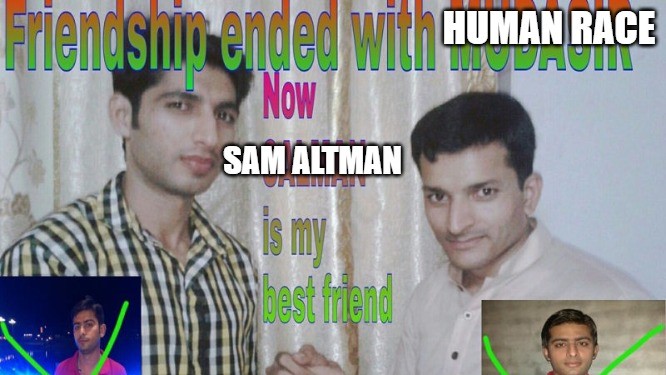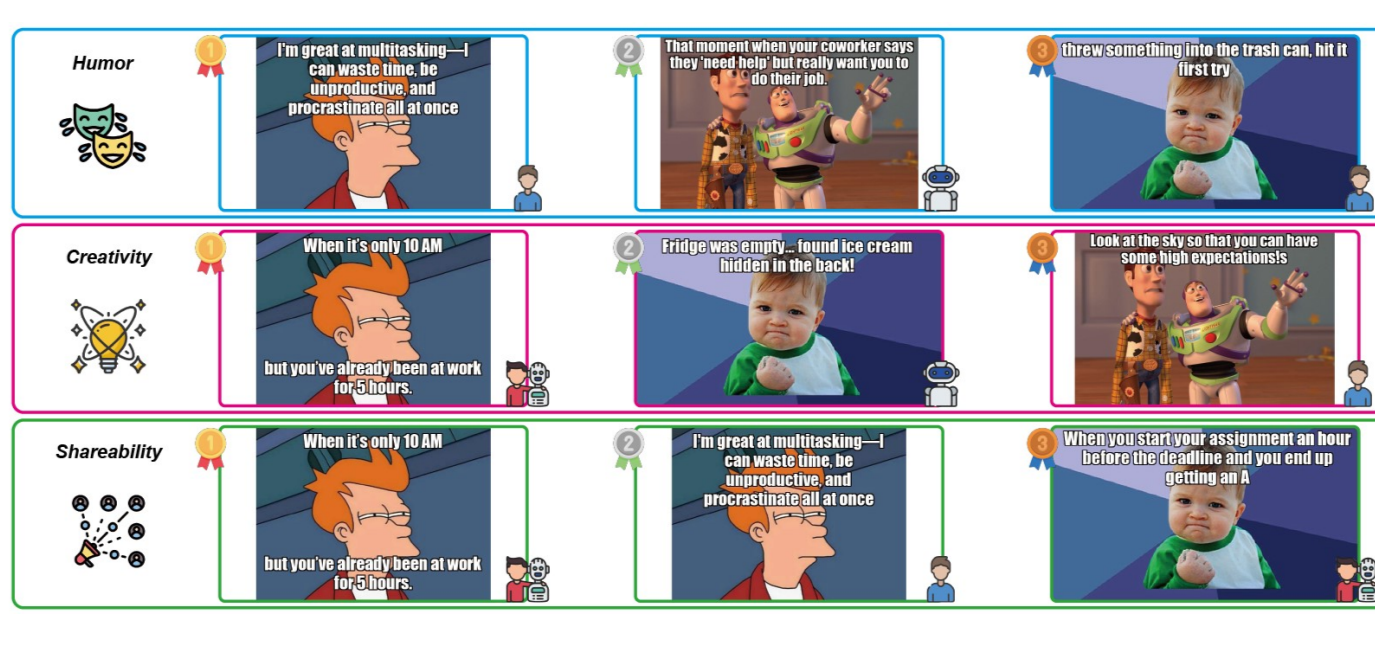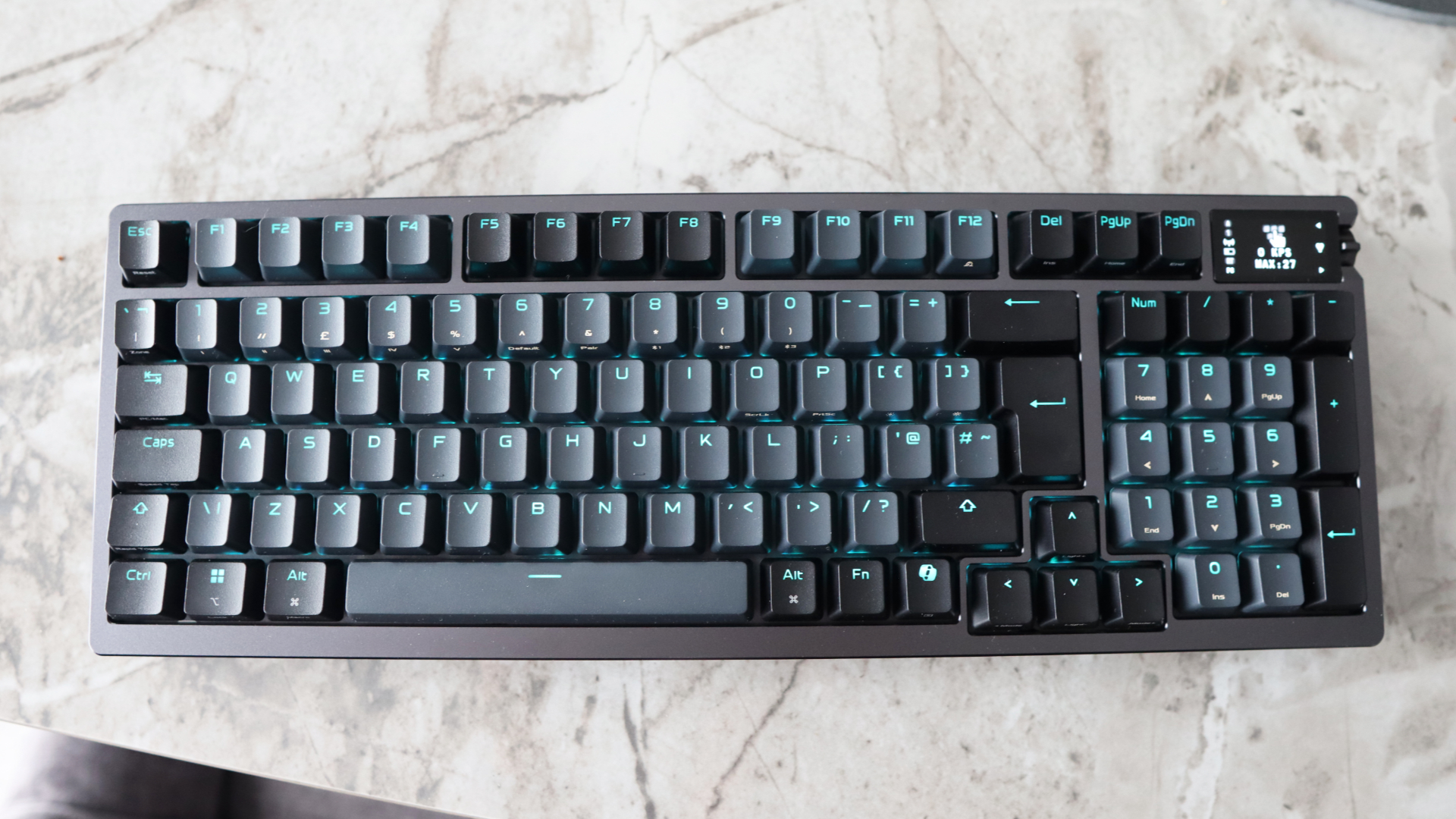Friendship ended with human race: Boffins declare the 'meme Turing test' has been passed, and AI is now making funnier captions on average than you useless lumps
But it might also be something to do with people enjoying 'bad' memes.

A new study has made the curious finding that memes with AI-generated captions are, generally speaking, found to score higher for creativity, humor, and "shareability" than those captioned by humans only, as well as humans in partnership with AI.
The one bright spot: Humans did overall create the most exceptional memes. But not enough, fleshbags.
The study is called "One Does Not Simply Meme Alone: Evaluating Co-Creativity Between LLMs and Humans in the Generation of Humor" and was first reported by Ars Technica. It surely goes without saying that everything it says should be taken with a pinch of salt, and the authors themselves caveat the findings, but nevertheless here we go.
The study was based on memes created on five existing meme templates: There's an image further down the article, but these are the Boromir template ("one does not simply etcetera"), the Toy Story one of Buzz pointing at something while Woody looks beat, the one of Fry from Futurama narrowing his eyes, the satisfied toddler with a clenched fist, and the doge meme.
These were captioned by humans, humans with the help of AI, and by AI independently. The AI model used was Open AI's GPT-4o. They were asked to caption the meme templates to relate to three categories of humor: work, food and sports.
The process would result in each group creating hundreds of memes, from which a random sample of 50 was selected. These were then rated by humans, who were each served a random sample of 50 of the memes in a survey and asked to rank them on the three criteria.
The results showed some broad takeaways: Workplace-related memes tended to be rated higher in most categories, which I'm guessing is because even the most ludicrously well-paid people I know love moaning about their job.
Keep up to date with the most important stories and the best deals, as picked by the PC Gamer team.
The memes made by AI models alone scored higher on average across the categories. However, the funniest individual memes were created by humans, while the human-AI collaborations ended up somewhere in the middle: a boost in productivity over solo humans, which apparently made them more "creative" and "shareable", without touching the best solo human examples.
"While AI can boost productivity and create content that appeals to a broad audience," says the study, "human creativity remains crucial for content that connects on a deeper level. The increased productivity of human-AI teams does not lead to better results—just to more results."
One more caveat: the humans who created memes in collaboration with AI generally felt slightly less ownership over their creations than humans who flew solo. Which feels like rather an important part of the creative experience.

"I regret to announce that the meme Turing Test has been passed," said Wharton professor Ethan Mollick of the study. "LLMs produce funnier memes than the average human, as judged by humans. Humans working with AI get no boost (a finding that is coming up often in AI-creativity work) The best human memers still beat AI, however."
But the big takeaway here is that, broadly speaking, AI can independently caption memes in a way that lots of humans find amusing. The researchers attribute this in the first instance to the fact that these models are trained on on a surfeit of internet data, from which it can triangulate broadly appealing patterns of humor. As the study puts it: "The AI picks up on general trends in its training data, which helps it to produce content that most people find appealing."
One of the interesting things is that, looking at the examples of AI-generated memes, they don't strike me as especially funny. But this may be the point. "One lesson is many people find bad memes funny and interesting," notes Mollick.
As someone who still uses Facebook, and has observed its gradual decline into AI-generated slop and meme accounts, these findings actually aren't surprising at all. You regularly see insane content that has to be AI-generated doing the rounds, and in some cases the stupidity of it is why people are sharing it: "Spot the AI" is almost an online metagame at this point.
"It is hard to compete with the AI’s ability to cater to popular tastes," notes the study's conclusion, even if "the individual human touch resonates most deeply on certain dimensions. The top-ranked human creators likely brought in personal experiences, cultural nuances, or innovative ideas that AI, limited to patterns from existing data, cannot fully replicate." And thus will it ever be.

Rich is a games journalist with 15 years' experience, beginning his career on Edge magazine before working for a wide range of outlets, including Ars Technica, Eurogamer, GamesRadar+, Gamespot, the Guardian, IGN, the New Statesman, Polygon, and Vice. He was the editor of Kotaku UK, the UK arm of Kotaku, for three years before joining PC Gamer. He is the author of a Brief History of Video Games, a full history of the medium, which the Midwest Book Review described as "[a] must-read for serious minded game historians and curious video game connoisseurs alike."
You must confirm your public display name before commenting
Please logout and then login again, you will then be prompted to enter your display name.

